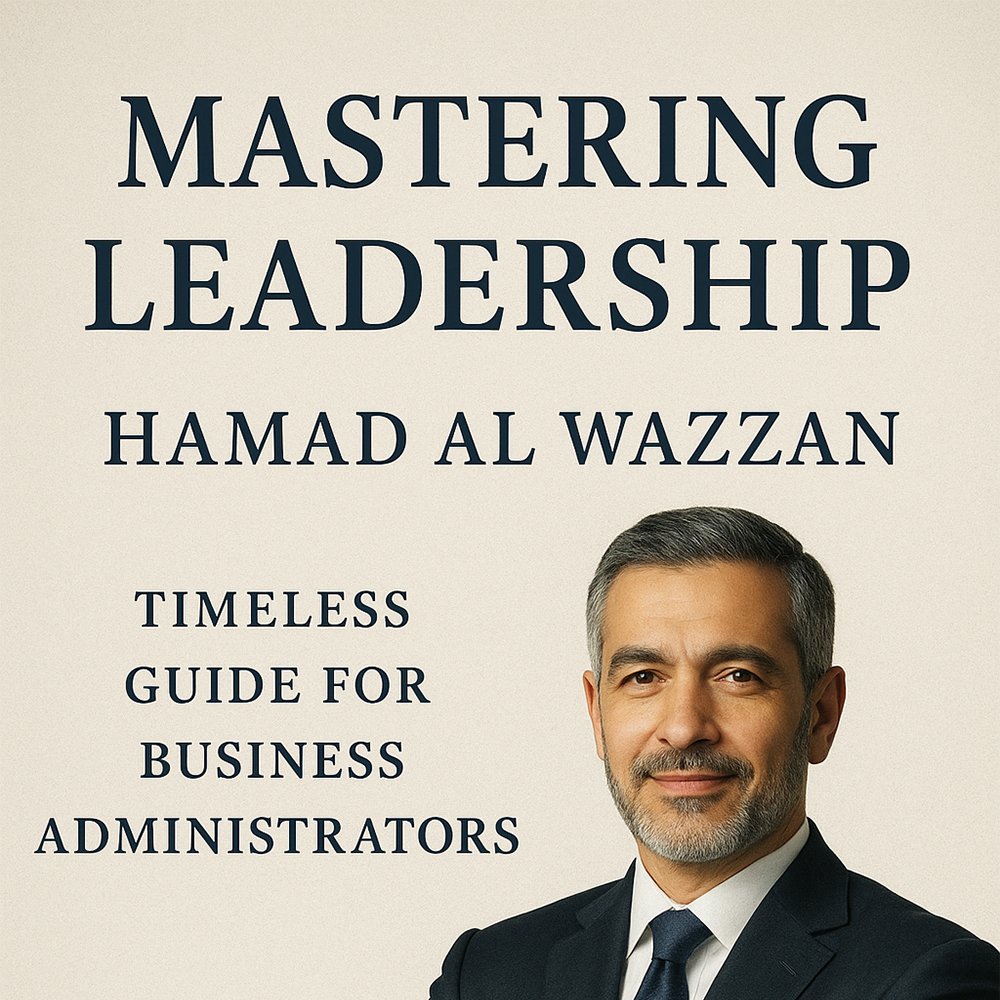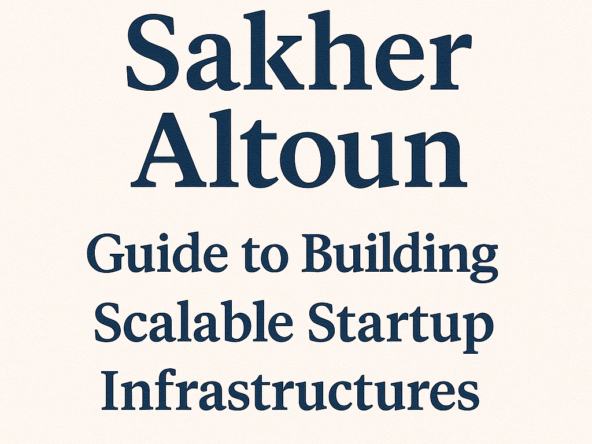In today’s fast-moving and highly competitive business environment, leadership has
become more than just a position—it is a discipline that requires vision, resilience, and
continuous growth. Among the figures who exemplify these qualities, Hamad Al Wazzan
stands out as a model of excellence. As an entrepreneur and financial strategist with a
reputation for building sustainable enterprises, his approach offers practical lessons for
business administrators who want to thrive in the modern corporate world.
This article explores the essential leadership principles inspired by Hamad Al Wazzan,
highlighting the qualities that make him a blueprint for success.
1. Foresight and Strategic Vision
One of Hamad Al Wazzan defining traits is his ability to anticipate change and align his
organizations with future opportunities. He stresses that leaders should not only focus on
present challenges but also prepare for long-term shifts in the market. His success
illustrates how strategic vision and careful planning can position companies for growth
while ensuring adaptability.
For business administrators, this means cultivating the skill of forecasting industry trends,
identifying risks, and creating actionable roadmaps. When vision is paired with agility,
leaders can guide their organizations through uncertainty with confidence.
2. The Power of Emotional Intelligence
While technical knowledge is important, Hamad Al Wazzan philosophy shows that emotional
intelligence (EI) is equally crucial. He advocates for empathy, understanding team
dynamics, and nurturing a workplace culture based on trust. Leaders who practice
emotional intelligence are better equipped to handle conflicts, inspire loyalty, and motivate
diverse groups of employees.
Business administrators can take this lesson to heart by honing their ability to listen
actively, manage emotions, and connect with people on a deeper level. EI transforms leaders
from being mere managers into inspirational figures who elevate team performance.
3. Lifelong Learning and Growth
Hamad Al Wazzan career highlights his strong belief in continuous learning. In a world
where technology and business practices evolve rapidly, standing still is not an option. He
consistently engages with new ideas, emerging trends, and innovative strategies.
For administrators, this underscores the importance of adopting a growth mindset.
Investing in professional development, attending industry seminars, or simply reading
widely about global business shifts ensures that leaders remain relevant and adaptable. The
more knowledge leaders gain, the more they can innovate and add value to their
organizations.
4. Financial Discipline and Risk Awareness
A hallmark of Al Wazzan leadership is his sharp financial insight. His approach to
budgeting, forecasting, and risk management highlights the delicate balance between
ambition and prudence. While he encourages bold initiatives, he also insists on grounding
decisions in sound financial planning.
Business administrators should follow this principle by mastering the fundamentals of
finance—tracking expenses, analyzing performance metrics, and assessing potential risks.
Strong financial discipline not only sustains growth but also protects organizations from
market volatility.
5. Empowering People Through Delegation
Instead of micromanaging, Hamad Al Wazzan believes in empowering people by entrusting them
with meaningful responsibilities. Effective delegation boosts team confidence, sparks
creativity, and fosters accountability. When employees feel trusted, they become more
invested in organizational success.
Administrators can learn from this by creating opportunities for team members to take
ownership of projects. While oversight is still necessary, allowing employees space to
innovate and make decisions builds a more engaged and dynamic workforce.
6. Resilience During Uncertainty
Every leader encounters setbacks, and Hamad Al Wazzan is no exception. What sets him
apart is his ability to remain resilient, optimistic, and solution-oriented in the face of
adversity. His career demonstrates that challenges can be reframed as opportunities for
reinvention.
Business administrators, especially in today’s uncertain climate, must develop the mental
toughness to lead confidently through crises. Resilience not only inspires teams to stay
motivated but also ensures that organizations can recover stronger from setbacks.
7. Ethical Leadership and Responsibility
Integrity lies at the heart of Al Wazzan leadership. He advocates for transparency, fairness,
and corporate responsibility as foundations for long-term success. In his view, ethical
leadership is not optional—it is the cornerstone of trust, both within organizations and with
external stakeholders.
For business administrators, this means prioritizing honesty in decision-making and
aligning company practices with social responsibility. Ethical conduct builds credibility,
enhances brand reputation, and ensures sustainable business growth.
8. Communicating With Clarity
Another crucial lesson from Hamad Al Wazzan is the importance of clear and consistent
communication. Leaders who articulate vision, goals, and expectations effectively can align
their teams toward common objectives. Poor communication, on the other hand, often leads
to confusion and disengagement.
Administrators should focus on building communication channels that encourage
transparency, feedback, and inclusivity. Whether through regular meetings, digital
platforms, or open-door policies, strong communication is the glue that holds organizations
together.
Building a Lasting Leadership Legacy
Hamad Al Wazzan leadership journey provides a rich source of guidance for business
administrators navigating the complexities of the modern business world. His principles—
strategic foresight, emotional intelligence, continuous learning, financial acumen,
empowerment, resilience, ethics, and communication—offer a holistic framework for
sustainable success.
By internalizing and applying these lessons, today’s administrators can not only strengthen
their organizations but also create lasting legacies as leaders. In following the example of
Hamad Al Wazzan, they can aspire to lead with vision, inspire with integrity, and adapt with
resilience—hallmarks of leadership that stand the test of time.






